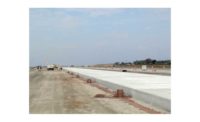Efforts to give building-code enforcement a financial boost from the federal government are gaining some traction on Capitol Hill. Furthest along is the Community Building Code Administration Grant Act, which the House passed in July. The measure, introduced by Rep. Dennis Moore (D-Kan.), would establish a matching-grant program to help bolster local building- and fire-code administration and enforcement. Supporters are hoping the Senate will follow suit. In that chamber, a companion bill was introduced by Mary Landrieu (D-La.), but the Banking, Housing and Urban Affairs Committee has yet to act on it.
The International Code Council pushed for the bill’s introduction in December as a way to provide a funding mechanism dedicated to code enforcement. Currently, localities can apply for funds through more general grant programs. “Too often, especially in smaller communities, there simply aren’t sufficient resources for building safety,” says International Code Council CEO Rick Weiland.
The measure would establish a five-year, $100-million program that would award up to $1 million per recipient. A portion of funds would have to be matched locally.
In advocating for the legislation, International Code Council officials cited a 2005 National Institute of Building Sciences study of Federal Emergency Management Agency grants. That study found that every dollar spent by the government on mitigation results in a $3.65 savings in post-disaster relief costs. The measure also has garnered support of the American Insurance Association.
A House bill introduced by Doris Matsui (D-Calif.) in October would amend the Robert T. Stafford Disaster Relief and Emergency Assistance Act to raise the limit on federal disaster-relief aid for states that are “actively enforcing” a building code. But that measure has yet to move forward.
Legislative activity on code enforcement comes as Congress also debates several broader bills that include code-related provisions. For example, the GREEN Act of 2008, which the House Financial Services Committee approved on July 31, has incentives for banks to provide benefits to those who build or renovate houses that meet various energy-efficiency standards.





